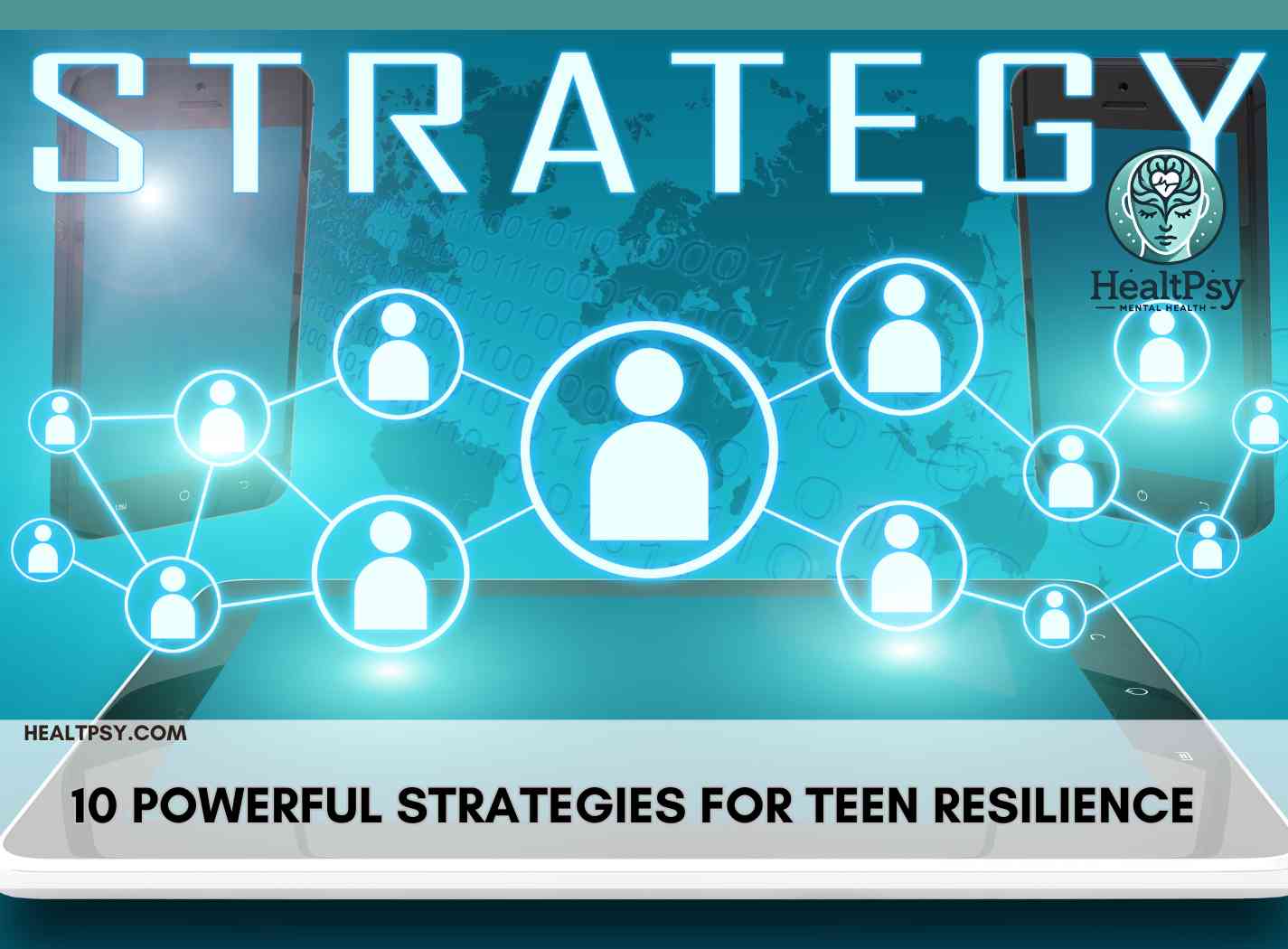10 Powerful Strategies for Teen Resilience
Teen Resilience: Introduction
Resilience is not something you’re born with; it’s a skill that can be learned. **The American Psychological Association (APA)** defines resilience as “the ability to adapt well in the face of adversity, trauma, tragedy, threats, or significant sources of stress.” Building resilience helps teens develop confidence, problem-solving skills, and emotional stability, which are crucial for long-term success.
For more information on Teen Resilience, visit APA Resilience Resources or explore our Teen Mental Health section.
Teen Resilience: Why is Resilience Important for Teens?
- Helps teens **manage stress and anxiety** effectively.
- Encourages **problem-solving skills** and independent thinking.
- Strengthens **self-confidence and self-efficacy**.
- Promotes **mental and emotional stability**.
- Enhances **healthy relationships** despite challenges.
- Encourages adaptability and a proactive approach to life’s difficulties.
For more information on Teen Resilience, visit APA Resilience Resources or explore our Teen Mental Health section.
Teen Resilience: 10 Strategies to Build Resilience in Teens
1. Build Strong Social Connections
Having a **support network of friends, family members, or mentors** helps teens handle stress and trauma more effectively. Healthy relationships provide emotional support, guidance, and encouragement during challenging times.
Practical Tips:
- Encourage open conversations with trusted individuals.
- Join school or community clubs to develop a sense of belonging.
- Seek mentorship from teachers, coaches, or counselors.
2. Maintain a Positive Self-View
Self-confidence plays a key role in overcoming adversity. Encouraging teens to recognize their strengths and achievements fosters a sense of capability and growth.
How to Build Self-Confidence:
- Celebrate small achievements and progress.
- Replace negative self-talk with affirmations.
- Engage in activities that foster self-expression, such as sports or arts.
3. Establish a Stress-Free Zone
Creating a personal space that fosters relaxation can significantly reduce stress and anxiety. Teens need an environment where they feel safe and comfortable.
How to Create a Stress-Free Environment:
- Designate a quiet, clutter-free space for relaxation and studying.
- Engage in calming activities such as reading, journaling, or listening to music.
- Set boundaries with technology to reduce information overload.
4. Develop Healthy Routines
Consistent routines provide stability. Ensuring adequate sleep, balanced meals, and regular study schedules enhances well-being. Establishing a predictable daily schedule reduces stress and improves time management skills.
5. Take Care of Physical Health
Exercise reduces stress hormones and boosts mood. Regular physical activity is crucial for emotional resilience. Studies show that movement improves focus, concentration, and overall mental health.
6. Focus on Problem-Solving Skills
Breaking down challenges into manageable steps helps teens feel more in control of difficult situations. Encouraging problem-solving skills promotes independence and resilience in overcoming life’s obstacles.
7. Express Emotions in a Healthy Way
Encouraging open communication and self-expression fosters emotional stability. Suppressing emotions can lead to stress buildup, making it essential to create safe outlets for feelings.
8. Develop a Growth Mindset
Viewing challenges as opportunities for learning enhances adaptability and perseverance. Teens who believe in their ability to improve tend to be more motivated and proactive.
9. Help Others and Give Back
Acts of kindness boost self-esteem and contribute to a sense of purpose. Helping others fosters connection, gratitude, and a more positive outlook on life.
10. Limit Exposure to Negative Media
Setting boundaries on media consumption helps reduce anxiety caused by negative news. Constant exposure to distressing content can heighten stress levels and negatively impact mental well-being.
For more information on Teen Resilience, visit APA Resilience Resources or explore our Teen Mental Health section.
Teen Resilience: Conclusion
Resilience is a skill that can be **developed and strengthened over time**. By **practicing these strategies**, teens can improve their ability to **handle stress, maintain emotional balance, and adapt to life’s challenges**.
Developing resilience takes time, patience, and continuous self-improvement. Whether through strong social connections, self-care habits, or positive thinking, every small effort contributes to greater emotional strength.
If challenges become overwhelming, seeking guidance from **a mental health professional or school counselor** can provide valuable support.
For more information on Teen Resilience, visit APA Resilience Resources or explore our Teen Mental Health section.
you might also like





